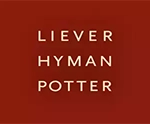On January 8, 2021, the United States Supreme Court agreed to hear the appeal of a Schuylkill County school district in a case arising out of disciplinary action taken against a cheerleader because of a message that she posted to Snapchat. In B.L. v. Mahanoy Area School District, 964 F.3d 170 (3rd Circuit 2020), B.L., a junior varsity cheerleader, failed to make the high school varsity cheerleading team, and over a weekend and away from school, posted a snap of herself and friend holding up their middle fingers which stated, among other things, “f*** cheer.” She was suspended from junior varsity cheerleading for a year for the snap and sued the school for violating her First Amendment rights.
Since 1969, the leading case on free speech rights of public school students has been Tinker v. Des Moines Independent Community School District, 393 U.S. 503 (1969). That case involved the suspension of students wearing black armbands on school grounds during school hours to protest the Vietnam War. In ruling that the students’ First Amendment rights had been violated, the Supreme Court held that students do not “shed their constitutional rights to freedom of speech at the schoolhouse gate.” Id. at 506. But, the Tinker court acknowledged a narrow exception that allowed school officials to regulate speech that would “materially and substantially interfere” with the requirements of appropriate discipline in the operation of the school.
While the Court has not clarified whether Tinker applies to “off-campus” speech in the intervening half-century, a number of Circuit Courts have, nevertheless, extended the reach of Tinker’s “materially and substantially interfere” standard to efforts to discipline public school students for “off-campus” speech.
In its groundbreaking decision in B.L. v. Mahanoy Area School District in June 2020, the Third Circuit Court of Appeals, which covers Pennsylvania, New Jersey, Delaware, and the Virgin Islands, became the first Circuit Court to hold that Tinker does not apply to “off-campus” speech—that is, speech outside school-owned, school-operated or school-supervised channels and this is not reasonably interpreted as bearing the school’s imprimatur. Commentators characterized the decision as a significant expansion of First Amendment Speech protection for students and called it a “bombshell,” “historic,” and “huge.”
The U.S. Supreme Court recently agreed to review the case, cert. granted, 208 L.Ed. 2d 509 (U.S. January 8, 2021) (No. 20-255), which presents an ideal opportunity for the Court to resolve the Circuit Court conflict over whether, and under what circumstances, public schools may discipline students for “off-campus” speech and to provide much-needed guidance to thousands of public schools and millions of teachers, administrators and students nationwide regarding an issue that recurs constantly and has become even more pressing as schools have been forced to operate online due to the pandemic.
The case is expected to be scheduled for oral argument before the Court in April, with a decision by the end of June.
By Andrew F. Fick, Esquire. Andy is admitted to practice before the U.S. Supreme Court and has extensive experience handling cases involving significant personal injuries in Pennsylvania’s workers’ compensation and civil trial courts.

